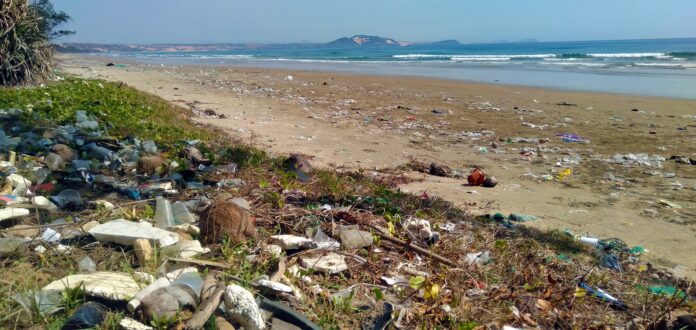Source: MakeLemonade.nz
Sydney – Many plastics end up in the ocean, where they release greenhouse gases as they slowly break down.
Plastic incineration is a significant source of air pollution. Many plastics end up in the ocean, where they release greenhouse gases as they slowly break down.
Plastic incineration is a significant source of air pollution. Establishing a circular economy is crucial to better management of plastics.
From bags caught in hedgerows to bottles bobbing in the ocean, the visible signs of single-use plastic addiction are everywhere. Plastics contributes to global warming.
From the way plastics effect marine environments to how they are disposed of, there needs to be a massive and immediate change as to how humans treat the ocean.
About 252,000 tonnes of plastic waste is disposed of on New Zealand landfills each year. Much of this is packaging from imported goods. This kind of demand on the earth’s resources simply cannot continue if future generations to thrive.
New Zealand has incredible marine biodiversity and all Kiwis want it to stay that way.
The oceans face a growing pollution crisis. About 8 million metric tonnes of plastics waste end up in the ocean every year. There are already probably 150 million metric tons of plastic in the oceans because this problem was ignored for decades.
The world’s appetite for plastics is fuelling growing demand for petrochemical products. Even as people try to curb fossil-fuel use in sectors such as transportation and heating, consumption of plastics will only increase, based on current trajectory
Getting rid of all the plastic also causes problems for the planet. Just 16 percent of plastics are recycled, the rest goes to landfill or is just dumped.
Much of the plastic that doesn’t make it to the recycling plant ends up in the rivers, the oceans and beaches. Not only is this a danger to the animals and plants whose habitats have become aquatic garbage patches, but it also poses a threat to the climate, as plastic releases greenhouse gases as it slowly breaks down.
Sunlight and heat cause it to release methane and ethylene – and at increasing rate as the plastic breaks down into ever smaller pieces.
On top of this, research suggests that microplastics affect the ability of marine microorganisms to absorb carbon dioxide and release oxygen. At least half of Earth’s oxygen comes from the ocean, mostly produced by plankton.
These tiny organisms also capture carbon through photosynthesis, making the ocean a vitally important carbon sink. Microplastics affect the ability of these organisms to grow, reproduce and capture carbon. By grazing on microplastics, the plankton could further accelerate the loss of ocean oxygen.
This means the pernicious effects of all this plastic on the marine environment are particularly concerning. A plastic-choked and warming ocean will create a negative feedback loop where plant and animal life suffer, less carbon dioxide is absorbed and the ability to rein in climate change is further hampered.
Open burning of waste is common in many parts of the world and is a major source of air pollution. Burning plastics releases a cocktail of poisonous chemicals that damage the health of the planet and the people exposed to the polluted air.



